For Philly Muslims, Ramadan iftars can include free meals, henna parties, and even chicken Alfredo
"When I moved to Philly, mosque iftars were my north star for finding community."
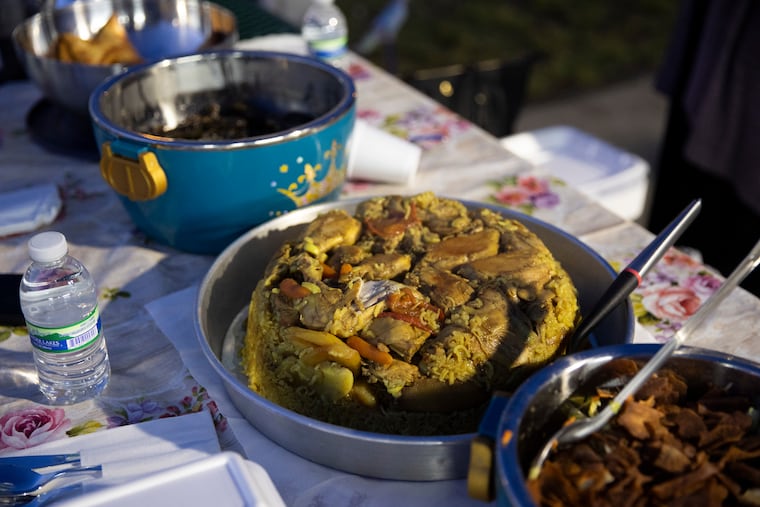
In the backyard of my hometown mosque in Memphis, aromas of bubbling curries, sizzling kebabs, and colorful biryani waft in the air. Community elders have meticulously set up cooking stations on folding tables, the gentle flicker of fuel can flames keeping the traditional South Asian dishes hot while the congregation passes around paper plates of samosas and dates.
I listen to my mother whisper prayers as I mentally countdown the minutes til sunset. Then, all at once phones chime with notifications and the call to prayer from the mosque quiets the chatter of the crowd — it’s finally time to feast.
During Ramadan, the monthlong holiday when observant Muslims fast from sunrise to sundown, I eagerly anticipate the nightly iftar. The meal breaks the day’s 12- to 17-hour fast, creating a moment of communal joy and satisfaction shared over a varied meal alongside family and friends.
When I moved to Philadelphia a little over three years ago, iftars hosted by mosques were my north star for finding community. What I found was a blend of Philly natives and immigrants from the city’s Muslim diaspora, from Afghanistan to Uzbekistan, breaking fast together at mosques, kitchen tables, and 24-hour diners across the city.
The holy month, celebrated this year from March 11 to April 9, is a spiritual gift I often overlook but one that always comes around when I need it the most. Taking away food and water, basic necessities for life, allows me to retreat from worldly desires, focus, and renew my sense of iman (faith). It’s a time for me to practice humility and patience, give charity, and connect with my newfound ummah (community).
Philly’s Muslim community makes up just over 1% of the population, reflecting a wide range of ethnic backgrounds that celebrate Ramadan at more than 70 mosques in Eastern Pennsylvania, according to research by Pew and the nonprofit Council for American-Islamic Relations (CAIR).
What makes the Philly community unique, says Idris Abdul-Zahir, imam at Masjidullah in East Germantown, is the influx of diverse attendees that venture out for weekly Friday prayers. While membership at Abdul-Zahir’s mosque is predominantly African American, he’s seen a mix of people from Pakistan, Bangladesh, the Levant, and the African diaspora over the past four to five years.
“[Ramadan] is a good time to visit other masjids (mosques) that you may not have been to in a while,” he said. “Sometimes folks masjid hop — they’ll start off at one spot and go to different [mosques] every night.”
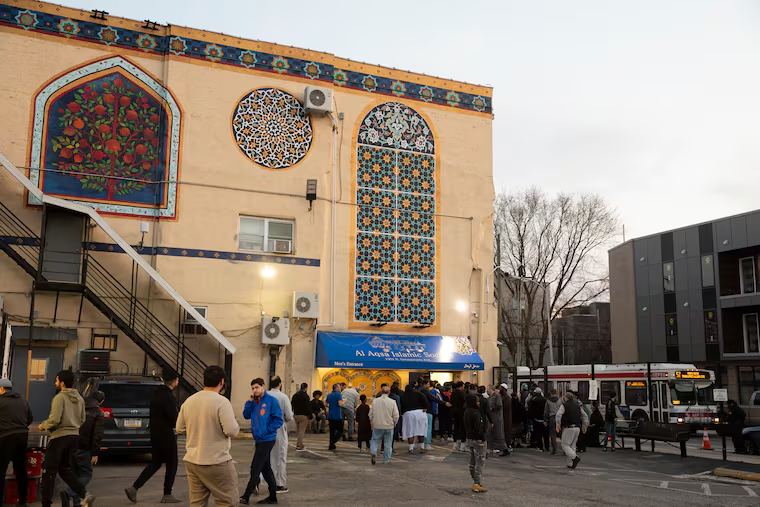
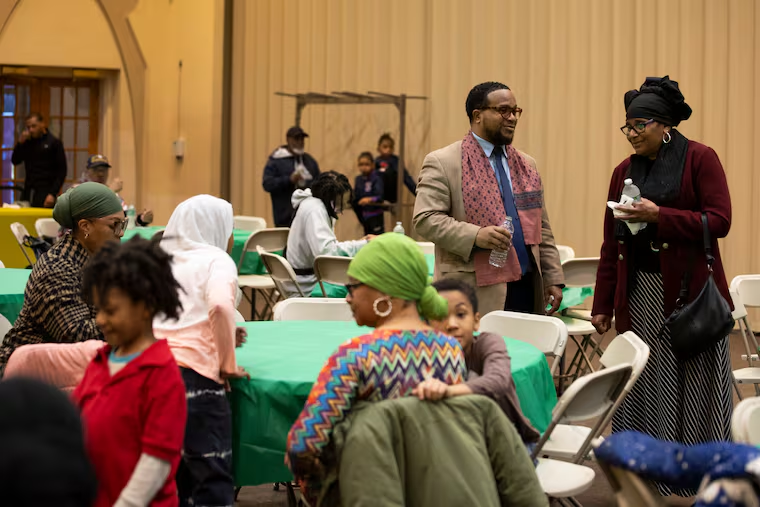
Breaking fast with biryani and chicken Alfredo
At Masjidullah, the banquet hall bursts with action as the athan, or call to prayer, signals the end of the fast around 7 p.m. Congregants eagerly devour sweet dates, an instant source of nourishment to open the fast following the Prophet and the Abrahamic tradition, and chug water bottles before crowding into the prayer rooms for maghrib, the evening prayer.
Upon returning, they’re greeted by a buffet of dishes from West African roti to Pakistani chicken biryani to fried fish and soul food. Each iftar spread at Masjidullah is sponsored by subcommittees and families, with meals prepared by in-house chefs and served by volunteers like Sieedah Abdellah.
It’s a scene that’s familiar for many Muslims who attend iftars at local mosques, showcasing the diversity within Muslim communities across America — the community is not a monolith — with people from all walks of life seeking communion every night to complete the day’s fast and pray together. “It’s a free meal every evening during Ramadan,” Abdul-Zahir said. “Depending on who’s sponsoring the meal — you get a different part of the world, which is always fascinating.”
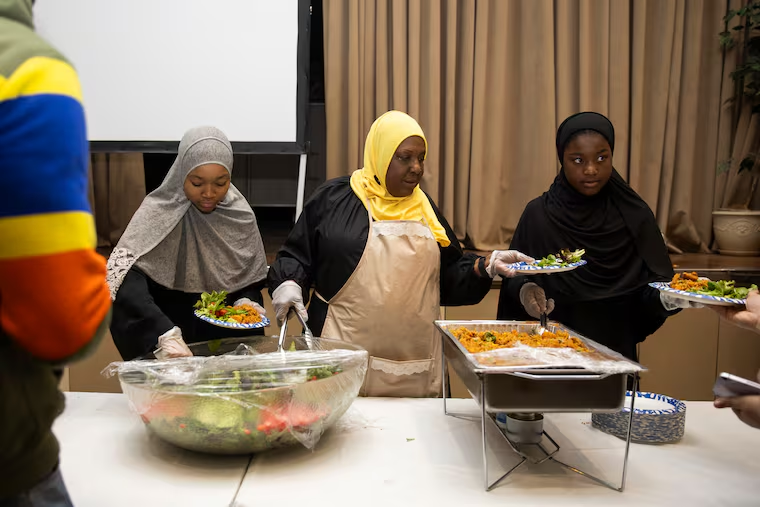

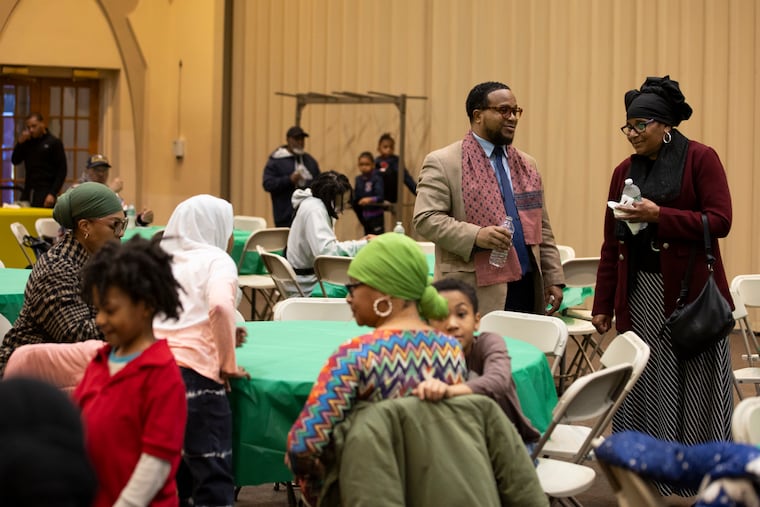
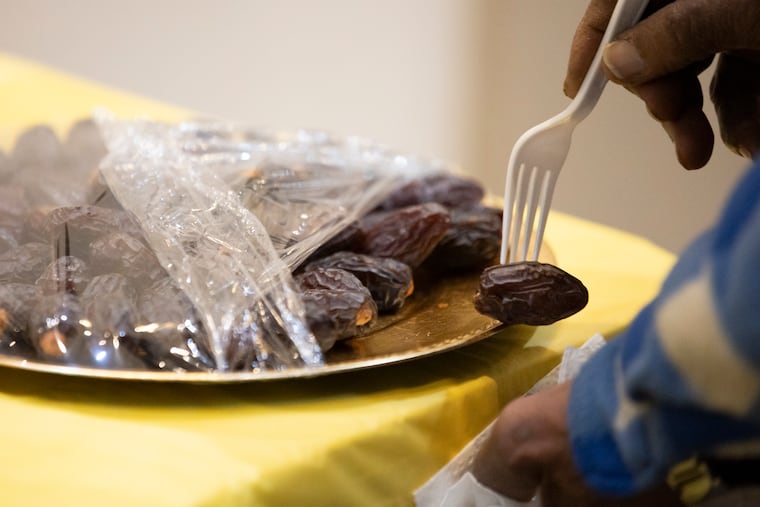
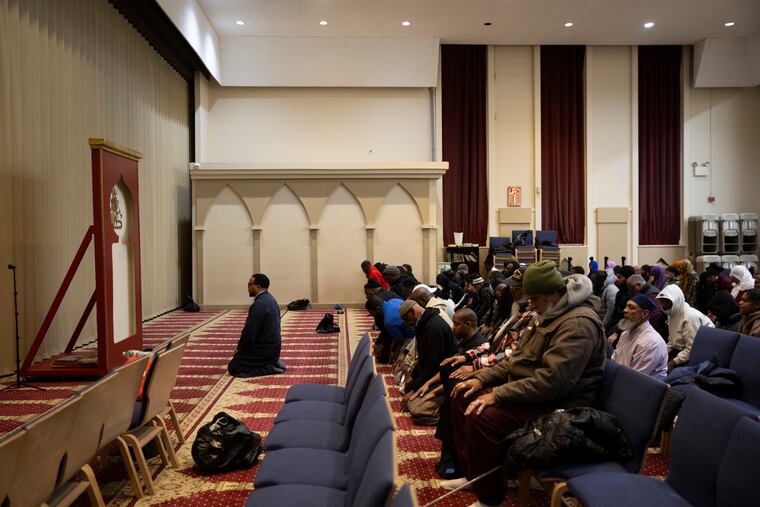



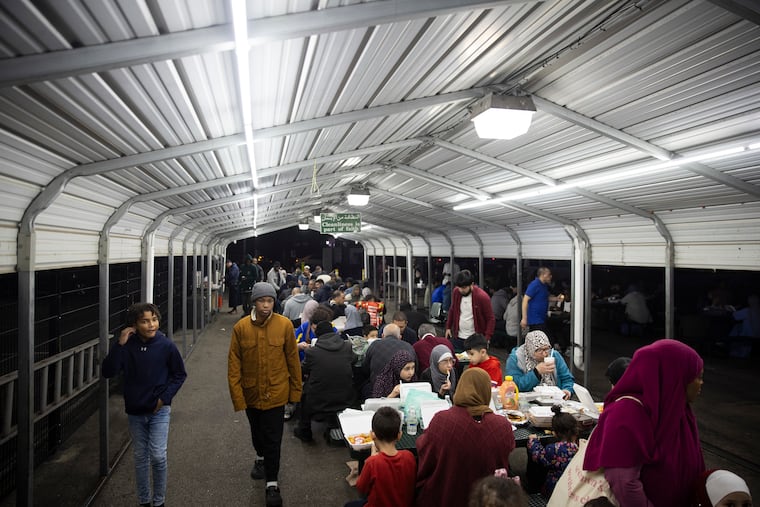
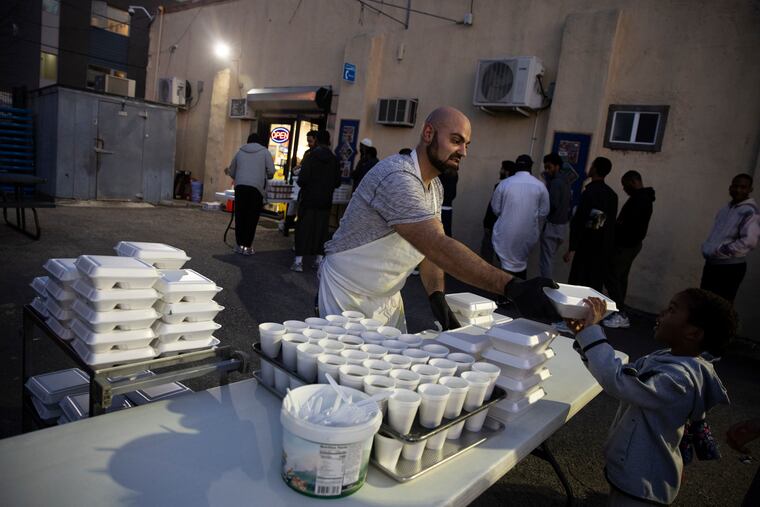

Abdellah, who has attended iftars at Masjidullah for the past eight years, looks forward to the biryani and chicken Alfredo often served.
As a volunteer, she finds the most joy feeding her community and the nonMuslims who visit the mosque during interfaith events.
“Eating is a mercy and a blessing, and when you’re eating together, [that’s] community,” Abdellah said.
‘Philly would not be Philly without Black queer Muslims’
Community potlucks are particularly special during the holiday, especially for people looking to gather outside the mosque.
In West Philly, Indigo Jordán is planning iftars with a mission to provide a welcoming sanctuary for the city’s queer, trans, and marginalized Muslims, who seek an inclusive space to gather, heal, and engage in “liberatory joy practices.”
In past years, Jordán hosted potluck iftars at home, inviting friends and their plus-ones to share savory and sweet dishes from West and East Africa, South Asia, and the Middle East, amid an ambience of music, incense, and henna.
The collective, called Queer Māʾida, will host similar iftars every Friday, along with educational talks about queer Islamic liberation and theology at various locations, which are privately shared to those that sign up for iftars.
“I really am enriched not just by the presence of queer Black Muslims in Philly, but [also with] the history of [them] in both organizing and within different liberation movements,” Jordán said. “Philly would not be Philly without Black queer Muslims.”
The mosque can sometimes make marginalized Muslims feel they need to “submit one side of yourself for another,” Jordán explained. Queer Māʾida offers a space where individuals “vulnerable to global structures of queerphobia, transphobia, and transmisogyny” don’t have to compromise any aspect of their identity. And during Ramadan, Philly’s queer Muslims can break bread together as themselves “without having to fear religious policing.”
“Philly is the city of brotherly love, and I think a part of that brotherly love is reflected in our everyday interactions of accepting people as they are,” Jordán said.
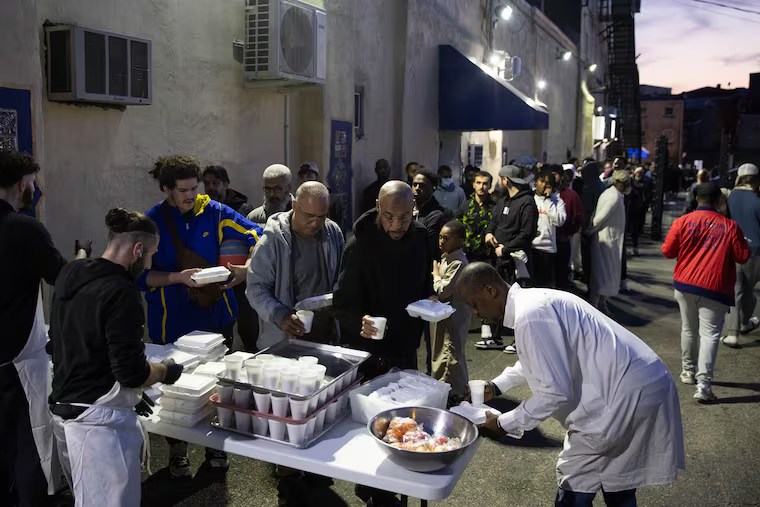
Getting to know your community one iftar at a time
This year marks a new chapter for Muslims in Center City, as they celebrate their first iftar in the newly located Center City Mosque on Walnut Street. Previously, attendees had to head down the alleyway behind St. John the Evangelist Roman Catholic Church to perform Friday prayer in a spare room, said Mohammed Shariff, the president of CCM. The former setup served as a convenient prayer space for commuters and local residents.
I can imagine the excitement Shariff and CCM attendees are feeling. My hometown congregation crowded into a small building for many years as we patiently waited for the mosque next door to open, spending every Ramadan fundraising for a place of worship. And when the doors finally opened, a collective joy washed over the congregation ready to break fast together.
This Ramadan, CCM is offering to-go packages of Palestinian dates and water. Shariff eagerly anticipates witnessing the diverse contributions from the congregation, which boasts members from East Africa, Afghanistan, Puerto Rico, Dominican Republic, Bosnia, and other backgrounds.
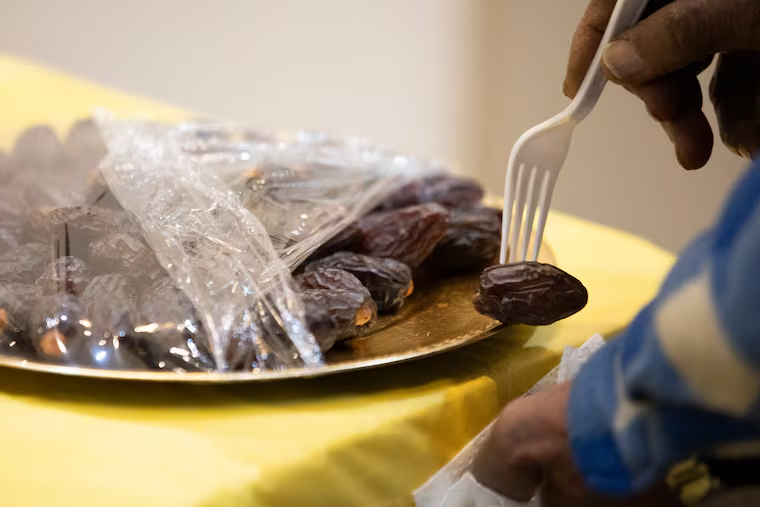
“It’s such an intimate environment amongst Muslims because everyone’s in the same bucket,” Shariff said. “You have been fasting all day, everyone’s breath smells bad, and you’re hungry and a little bit tired. But then when you have that first date with water, everyone all of a sudden gets excited again — I think that’s why people share their inner culture [at these iftars].”
Attending Al-Aqsa Islamic Society’s Ramadan iftars for a little over 10 years has introduced Ammar Sadeq, who emigrated from Kuwait in 2012, to new cuisines and connections.
Sitting at the tables in the Fishtown mosque’s parking lot, Sadeq got to chatting with a fellow iftar attendee who walked up to him one night bearing gifts of Moroccan couscous. While the mosque provides Styrofoam boxes of meats and rice, congregants sometimes bring their own dishes to share with the crowd.
What started as a stranger sharing homemade couscous quickly turned into a Ramadan buddy who Sadeq sees every year— a similar experience I’ve found hopping from one community iftar to the next this year, connecting with Philly’s wonderfully diverse ummah along the way.
“I think Ramadan provides an opportunity for people to actually bond with each other — different cultures are coming together and they’re sharing a part of themselves through food,” he said.
“It’s a good way to get to know your own community.”